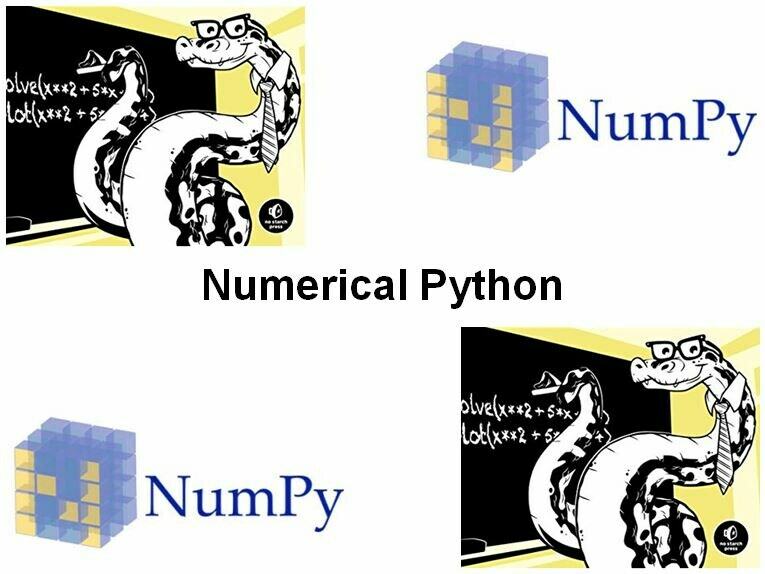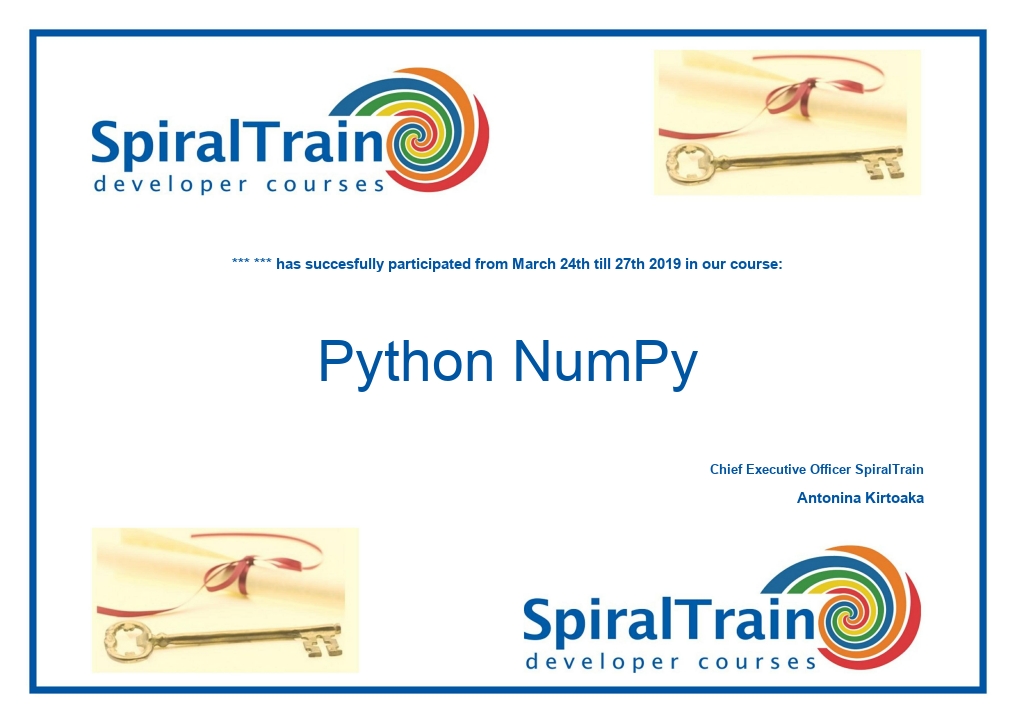-
Learning by doing
-
Trainers with practical experience
-
Classroom training
-
Detailed course material
-
Clear content description
-
Tailormade content possible
-
Training that proceeds
-
Small groups
In the course Python NumPy the Python packages NumPy en MatplotLib are discussed. These Python add-on libraries are very useful for the creation of data analysis and data processing applications.
The course starts with an overview of NumPy and its sister library SciPy and how we can install these libraries.
Next the NumPy's ndarray object and its methods are discussed. Attention is paid to many different array manipulation techniques. These methods process large data sets very efficiently.
Next matrix handling with Numpy is treated and attention is paid to special routines for ordening, searching and comparing data in matrices.
Finally the MatplotLib library is discussed. This library is closely integrated with NumPy and SciPy and this makes it a very powerful tool to create and plot complex figures. The course uses real world examples to visualize of one- and two dimensional data.
The course Python NumPy is intended for scientists and Big Data analysts who want to use Python with NumPy and MatPlotLib for data analysis and data processing.
To participate in this course prior knowledge of Python programming is necessary. Knowledge of numerical methods is beneficial for the understanding.
The theory is dealt with on the basis of presentation slides. The concepts are illustrated with demos. The theory is interspersed with exercises. The course times are from 9.30 to 16.30.
The participants receive an official certificate Numerical Python after succesful completion of the course.

Module 1 : Numpy Intro |
Module 2 : Common Functions |
Module 3 : Matrices |
| What is NumPy? What is SciPy? Installing NumPy NumPy array object Selecting elements NumPy numerical types Data type objects dtype constructors dtype attributes Onedimensional slicing and indexing Multidimensional slicing and indexing Array comparisons any(),all(), slicing, reshape() Manipulating array shapes Stacking and Splitting arrays Converting arrays |
Methods of ndarray Clipping arrays Compressing arrays Views versus copies ravel(),flatten(),transpose() Missing values Handling NaNs nanmean(), nanvar() and nanstd() File I/O Loading from CSV files mean() function Value range Dates Correlation Smoothing full() and full_like() functions |
Working with Matrices ufuncs Creating matrices Universal functions Arithmetic functions Modulo operation Fibonacci numbers Bitwise functions Comparison functions Fancy indexing at() method Inverting matrices Finding eigenvalues Singular value decomposition Pseudo inverse Determinants |
Module 4 : Special Routines |
Module 5 : Plotting with MathplotLib |
|
| Sorting partition() function Complex numbers Searching Array elements extraction Assert functions Almost equal arrays Equal arrays Ordering arrays Object comparison String comparison Floating point comparisons Unit tests |
Simple plots Plot format string Subplots Histograms Logarithmic plots Scatter plots Fill between Legend and annotations Threedimensional plots Contour Plots Transformations Animation Projections |
